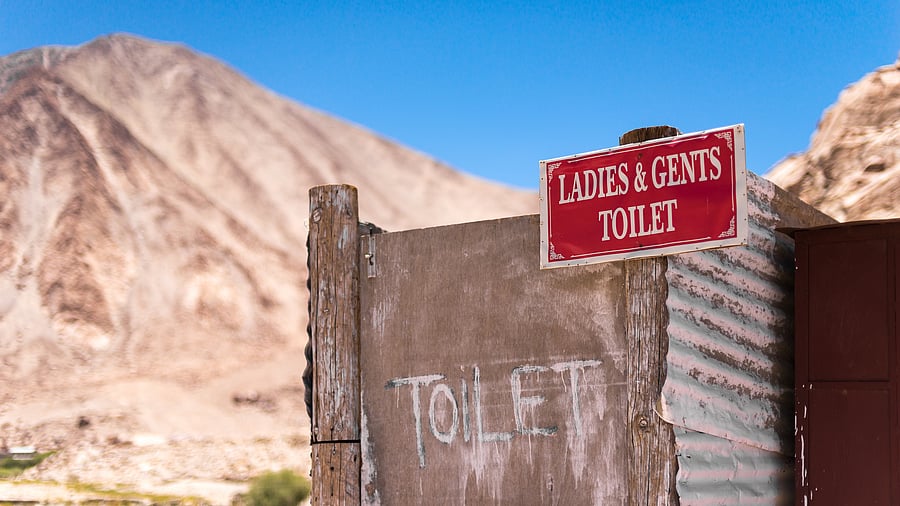
Image for representation.
Credit: iStock Photo
Bengaluru: Despite claims that Karnataka is free of open defecation, parts of the state continue to be plagued by the menace.
Official documents from the Karnataka Lokayukta accessed and reviewed exclusively by DH revealed that as many as 28 cases pertaining to open defecation were registered in Davangere, Vijayapura and Bagalkot districts till December 2024.
Vijayapura district registered the most cases at 12, followed by 10 in Bagalkot and six in Davangere. Officials stated that the issue was most prevalent in these three districts. A few cases were also registered in Yadgir, Kalaburagi and some parts of Belagavi, they said.
The cases were registered suo motu following directions by Lokayukta Justice B S Patil after the department received several complaints. The investigating officers were directed to check them, and based on their reports, cases were registered for further action.
In Vijayapura district, the ombudsman booked cases in Nidagundi, Basavana Bagewadi, Muddebihal, Devar Hippargi, Kolhar, Chadchan, Babaleshwar, Sindagi, Tikota, Indi, Talikoti and Vijayapura taluks.
In Bagalkot district, cases were registered in Mudhol, Badami, Guledagudda, Jamkhandi, Hungund, Bilgi, Ilkal, Rabkavi Banhatti and Bagalkot taluks. In Davangere district, cases were booked in Harihar, Channagiri, Honnali, Nyamathi, Jagalur and Davangere taluks.
The executive officers of taluk panchayats and the chief executive officers of zilla panchayats were made respondents in the case. In one case in Bilgi, Bagalkot, the superintendent of police, the station house officer of Bilgi station and a police constable (Rural Beat-3) were made the respondents.
Senior officers from the Lokayukta told DH that several issues were contributing to the cases, including misuse of funds, lack of awareness and in many cases, unwillingness to change habits. In many instances, the funds released for building toilets were used for other purposes, and half-built toilets were used as storage units or for tethering cattle, they said.
“The funds released for building toilets are not utilised for the purpose — instead, they are used for other purposes, but illegally shown as toilets are constructed,” the officer said. “In other cases, the toilets are half-built and not put to use and in some cases, fully constructed but used for storing goods or tethering cattle.”
Another officer said that apart from a lack of awareness among some people, many were simply unwilling to use it.
“Many people are still willing to defecate openly and are adamant against using toilets. Some people who can afford to build toilets don’t do it. Many feel that having a toilet inside their house and using it is dirty, but doing it in other places is okay. The problem is with the mindset, and it has to change. Some do it in spite of being educated, without realising that their acts result in serious health implications, too,” the officer
said.
Another problem, the officer said, was that since there was no option for strict penalties and except fines in some cases, people continue to do it.